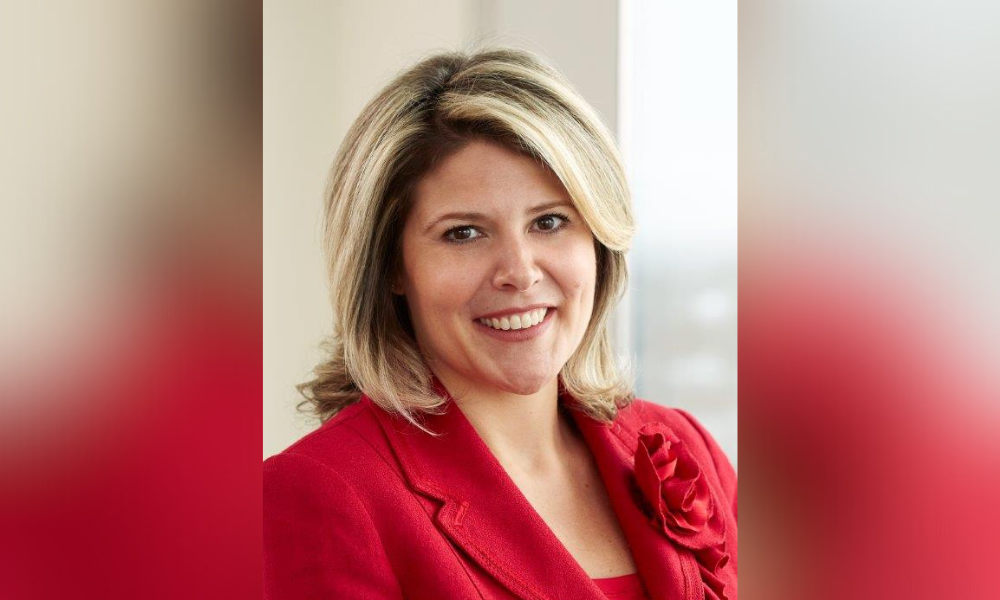As an institution they trust, employers are in a great position to offer programs to help their employees with financial planning, literacy, and wellness

The start of a new year often comes with financial stress for many Canadians as they deal with post-holiday credit card bills coming due, pressures of RRSP season, and reduced income as CPP/QPP deductions increase.
The good news is employers can help their employees through these difficult times, says Eckler in its January edition of Go with Eckler.
“We’ve learned in trying to communicate and engage with defined contribution (DC) plan members is that if they are struggling with their day-to-day finances, retirement is a lofty goal to try to get them to engage with because they have more immediate pressing concerns,” says Janice Holman, principal, financial wellness and DC consulting, with Eckler. “That led to the development of our Financial Wellness Consulting Group, which started about six years ago.
“We help employers create financial wellness programs that they can offer their employees. And the one thing that really differentiates Eckler is that we don't sell any financial products, so we're focused on providing education, information, and support to the members without them being concerned about a sale coming their way.
Eckler’s program consists of a variety of resources such as articles, webinars, and workshops where members can engage and do exercises to learn about financial matters.
“We have a workbook they can complete for themselves and their family as well,” says Holman. “The program involves a spectrum of resources, and we go as far as providing guidance on a one-to-one basis to individuals. We also have an online financial planning platform that clients can subscribe to that is very comprehensive and let’s the user interact regardless of their age or stage in life.
“So we supply content and options to help plan administrators offer support to plan members with their financial wellness.”
Financial literacy is as important as it’s ever been
Holman says the topic of financial literacy and wellness is as important as it’s ever been. “Forty percent of Canadians say money is their top cause of stress, before their health, work, and relationships. That’s the highest it’s been in the last four year.
“Canadians are struggling and you can't break it down by income group because a lot of people live to whatever that paycheck is. When things change, like inflation and interest rates, everyone feels the effect of that. It seems things are getting worse, not better.
“The effects of that financial stress are real and crosses over into physical health. Forty-eight percent of people say they're losing sleep over their money situation, and we all know how important sleep is to our physical and mental health. Unfortunately, 44 percent of Canadians are less hopeful for their financial future.
“If you're really struggling about your finances and your future doesn't look bright, it's very hard to engage, whether that be at work or in life. So, the impact of financial stress is taking away from productivity in the workforce.
“To help with that, the Financial Consumer Agency of Canada and Eckler are focused on working with employers to help them provide support through the workplace.
“When it comes to receiving financial assistance, advice, or education, it really needs to come from a trusted body or organization. That's one of the main feedback items that we hear from people is that they don't know who to go to. They don't know who to trust, so the employer is really in a great position to help employees as a trusted source.”
Holman says employers have a range of possibilities on how to deliver financial support including employee assistance plans (EAPs) that could have financial counselling offered within it. Some employers bring in financial advisors so employees can have one-to-one contact.
Employees must understand the benefits they have
“It's very important for employees to understand the benefits that they have,” says Holman. “They need to understand what retirement or savings programs they have and what health benefits they have so when they go through these periods of financial stress, they are aware of what their employer offers and can take advantage of it. If they do utilize these benefits, it is not only good for them, but also good for the employer that its workforce knows and values what it offers.”
This is the time of year that employers set goals with employees, so it is a good time for managers to check in with their staff members to see how they are doing. “Managers can make sure staff is aware of all the resources that are available to them,” says Holman.
She also says employers can do a quick survey of the employee group to find our what the key areas are that people are struggling with. “That then allows employers to offer something that is targeted and will be helpful instead of just offering a program that covers topics with a broad brush.
“If the employer doesn't feel comfortable because it doesn't have the resources internally to provide financial education, it can partner with external providers and have them provide that service.
“There is an overwhelmingly large amount of information that's available out there. I think people struggle because it’s piecemeal and they don’t know how to put it together in a cohesive way to create a financial plan. They also don’t know who they can trust.” As an institution they trust, employers are in a good position to offer a coordinated program to help their employees with financial planning, literacy, and wellness. In the end, it is a win for everyone when people feel confident about their financial future.



